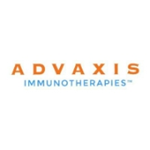Advaxis Presents Updated Clinical Data from Ongoing Phase 1/2 Trial of ADXS-503 in NSCLC and Upcoming Milestones
Updated data show a second partial response in Part B
Overall response rate of 15.4% and disease control rate of 46% in Part B with durable clinical benefit in patients with prior disease progression
Preliminary data show disease control rate of 67% in first 3 patients in Part C, with ADXS-503 being dosed in combination with pembrolizumab in first line
MONMOUTH JUNCTION, N.J., Jan. 11, 2022 (GLOBE NEWSWIRE) -- Advaxis, Inc. (Nasdaq: ADXS), a clinical-stage biotechnology company focused on the development and commercialization of immunotherapy products, today announced updated data from the Company’s ongoing Phase 1/2 study evaluating ADXS-503 in combination with KEYTRUDA®. ADXS-503 is the first drug construct from the ADXS-HOT off-the-shelf, cancer-type specific, immunotherapy program which leverages Advaxis’ proprietary Lm technology platform to target hotspot mutations that commonly occur in specific cancer types as well as other proprietary, tumor-associated antigens.
“NSCLC patients resistant to PD-1/-L1 checkpoint inhibitors (CPIs) have limited treatment options. Current treatment guidelines allow for CPI re-challenge but the overall response rate (ORR) seen with this approach is below 10% and disease control rate (DCR) of up to 45%. Thus, it is encouraging to report that in Part B of the study, the documented ORR has now increased to 15.4 % and DCR has reached 46% in the first 13 evaluable patients treated with ADXS-503 as an add-on therapy at progression with pembrolizumab,” said Dr. Jonathan W. Goldman, Associate Professor of UCLA Hematology and Oncology, Associate Director of Drug Development and Director of Clinical Trials in Thoracic Oncology at UCLA Medical Center in Santa Monica, California. “These results now include a second additional patient with a partial response and 4 patients with stable disease. The durable nature of disease control is also encouraging and includes two patients with ongoing partial responses for 702 and 189 days, and three patients with stable disease sustained for 448, 175 and 117 days.”
Dr. Goldman continued, “If the addition of ADXS-503 to patients progressing on pembrolizumab could achieve a durable response rate at or above 20%, with minimal added toxicity, this combination could become a new therapeutic option for this underserved patient population. We look forward to completing the enrollment of a total of 18 patients in Stage 1 of Part B.”
Dr. Andres A. Gutierrez, Chief Medical Officer of Advaxis, said, “The enrollment of Part C of the study, evaluating NSCLC patients treated in first line with ADXS-503 in combination with pembrolizumab, has also started. Given the median progression free survival (PFS) achieved with CPIs alone in first line NSCLC is 7-10 months, and the encouraging results from Part B in this study, it is expected that the addition of ADXS-503 to pembrolizumab may achieve meaningful improvements in PFS above standard of care with a target of greater than or equal to 9 months. Three patients have thus far been evaluated showing a disease control rate of 67%, with two patients sustaining stable disease for 332 and 94 days. As expected, the combination therapy has been well tolerated with mild and transient flu-like syndrome a few hours after the infusion of the drugs but without increasing the frequency of immune-related adverse events.”
Ken Berlin, Chief Executive Officer of Advaxis, said, “Major milestones for the ADXS-503 trial in the second half of 2022 include updated clinical and immunogenicity data for all patients in Stage 1 in Part B and from up to 10 patients in Part C. Also, initial clinical and immunogenicity data from the ADXS-504 trial in early prostate cancer are expected to be reported in the second half of this year.”
Key Updates and Future Data Read-outs:
- In Part B of the study, 14 patients have been treated and 13 are evaluable with ADXS-503 as an add on therapy to patients failing pembrolizumab as last therapy with all of them evaluable for safety and efficacy
- Combination therapy was well tolerated with no dose-limiting-toxicity (DLT) or added toxicity of the two drugs. Grade 1 and 2, transient and reversible events included chills, fever, fatigue, in approximately half of the patients
- The ORR was 15.4% (2/13) and DCR was 46% (6/13)
- Clinical benefit was durable, with two partial responses (PR) sustained for 702 and 189 days, respectively, and 3 patients with stable disease (SD), sustained for 448, 175 and 117 days. Another patient with stable disease is still under evaluation
- Available data demonstrate that patients who achieve clinical benefit include those with PD-L1 expression ≥50%, secondary resistance disease to pembrolizumab and those who show proliferation and/or activation of NK and CD8+ T cells within the first weeks of therapy
- Additional translational studies, including flow cytometry, ELISPOT, cytokines/chemokine levels, mutational analysis, MSI TMB and cfDNA and their clinical correlates, will be presented at an upcoming medical meeting
- In Part C of the study, 3 patients with newly diagnosed NSCLC have been treated with ADXS-503 plus pembrolizumab. Treatment has been well tolerated and disease control rate thus far is 67%, with two patients sustaining stable disease for 332 and 94 days.
- Enrollment in Part B and Part C of the ongoing study will continue to further evaluate the clinical benefit and immune effects of adding on ADXS-503 to patients progressing on pembrolizumab
The Phase 1/2 clinical trial of ADXS-503 is seeking to establish the recommended dose, safety, tolerability and clinical activity of ADXS-503 administered alone and in combination with a KEYTRUDA® in approximately 50 patients with NSCLC, in at least five sites across the U.S. The two dose levels with monotherapy in Part A, (1 X108 and 5 X108 CFU) have been completed. Part B with ADXS-503 (1 X108 CFU) in combination with KEYTRUDA® is currently enrolling its efficacy expansion for up to 18 patients at dose level 1 (1 X108 CFU + KEYTRUDA®) with the potential to proceed to dose level 2 (5 X108 CFU + KEYTRUDA®) at a later date. Part C of this ADXS-503 trial evaluating ADXS-503 in combination with KEYTRUDA® (1 X108 CFU + KEYTRUDA®) as a first line treatment for patients with NSCLC with PD-L1 expression ≥ 1% or who are unfit for chemotherapy, is currently enrolling patients.
About ADXS-503
ADXS-503 is a live attenuated Listeria monocytogenes (Lm)-based, off-the-shelf immunotherapy that is under clinical development as a single agent and in combination with other cancer therapies for the treatment of squamous and non-squamous non-small cell lung cancer (NSCLC). ADXS-503 is bioengineered to secrete an antigen-adjuvant fusion protein consisting of a truncated fragment of listeriolysin O (tLLO) fused to 22 NSCLC-associated tumor antigens. The proposed mechanism of action of Advaxis’ Lm-based immunotherapy is to stimulate both the innate and adaptive immune systems to initiate a coordinated antitumor response culminating in the generation of tumor antigen-specific T cells that are capable of infiltrating and destroying the tumor.
About Advaxis, Inc.
Advaxis, Inc. is a clinical-stage biotechnology company focused on the development and commercialization of proprietary Lm-based antigen delivery products. These immunotherapies are based on a platform technology that utilizes live attenuated Listeria monocytogenes (Lm) bioengineered to secrete antigen/adjuvant fusion proteins. These Lm-based strains are believed to be a significant advancement in immunotherapy as they integrate multiple functions into a single immunotherapy and are designed to access and direct antigen presenting cells to stimulate anti-tumor T cell immunity, activate the immune system with the equivalent of multiple adjuvants, and simultaneously reduce tumor protection in the tumor microenvironment to enable T cells to eliminate tumors.
To learn more about Advaxis, visit www.advaxis.com.
Forward-Looking Statements
This press release contains forward-looking statements that are made pursuant to the safe harbor provisions within the meaning of Section 27A of the Securities Act of 1933, as amended, and Section 21E of the Securities Exchange Act of 1934, as amended. Forward-looking statements are any statements that express the current beliefs and expectations of management, including but not limited to statements related to the expected clinical development of the Company’s drug product candidates, statements about the Company’s balance sheet position, and statements related to the goals, plans and expectations for the Company’s ongoing clinical studies. These and other risks are discussed in the Company’s filings with the SEC, including, without limitation, its Annual Report on Form 10-K, filed on January 22, 2021, and its periodic reports on Form 10-Q and Form 8-K. Any statements contained herein that do not describe historical facts are forward-looking statements that are subject to risks and uncertainties that could cause actual results, performance and achievements to differ materially from those discussed in such forward-looking statements. The Company cautions readers not to place undue reliance on any forward-looking statements, which speak only as of the date they were made. The Company undertakes no obligation to update or revise forward-looking statements, except as otherwise required by law, whether as a result of new information, future events or otherwise.
KEYTRUDA® is a registered trademark of Merck Sharp & Dohme Corp., a subsidiary of Merck & Co., Inc., Kenilworth, N.J., USA.
Investor Contact
Tim McCarthy
LifeSci Advisors, LLC
Tim@lifesciadvisors.com
(917) 679-9282


